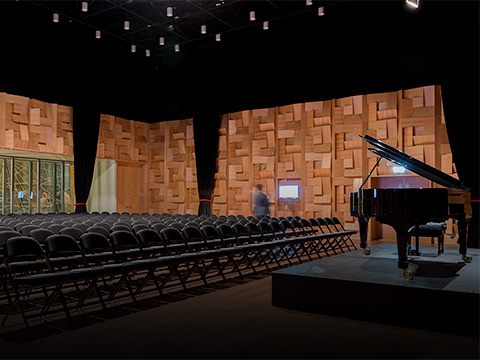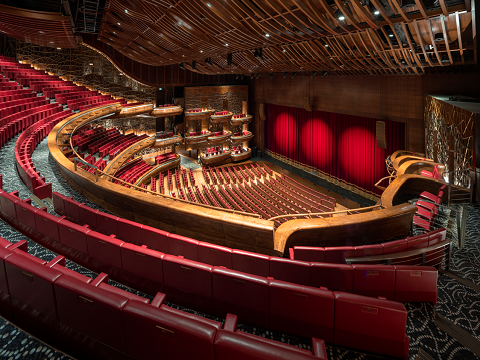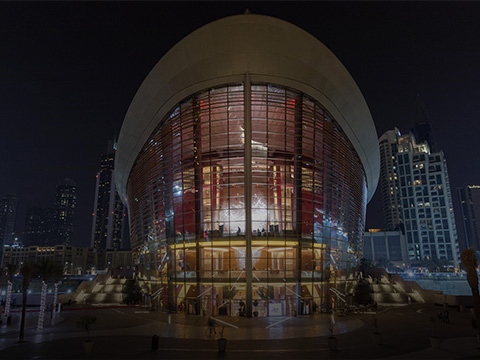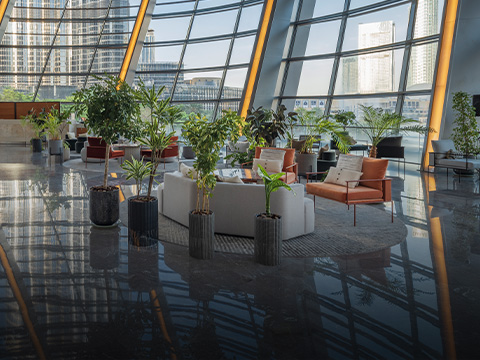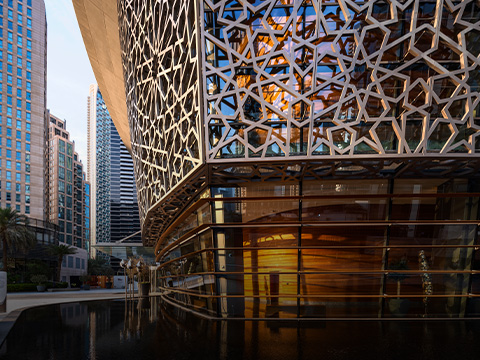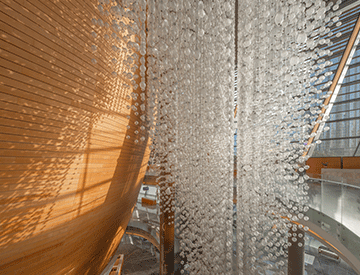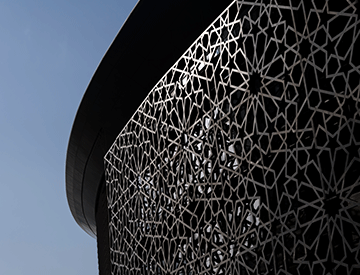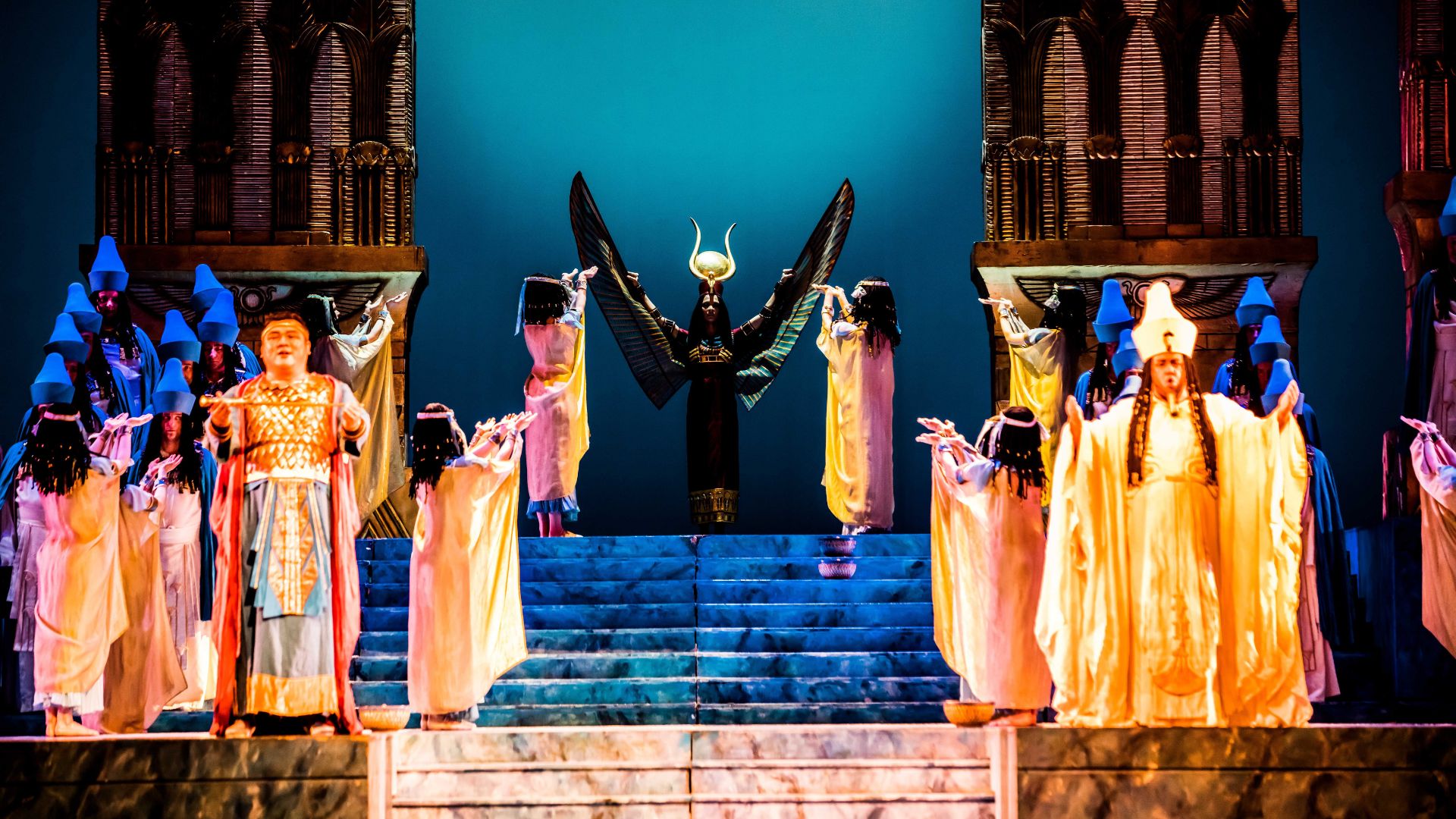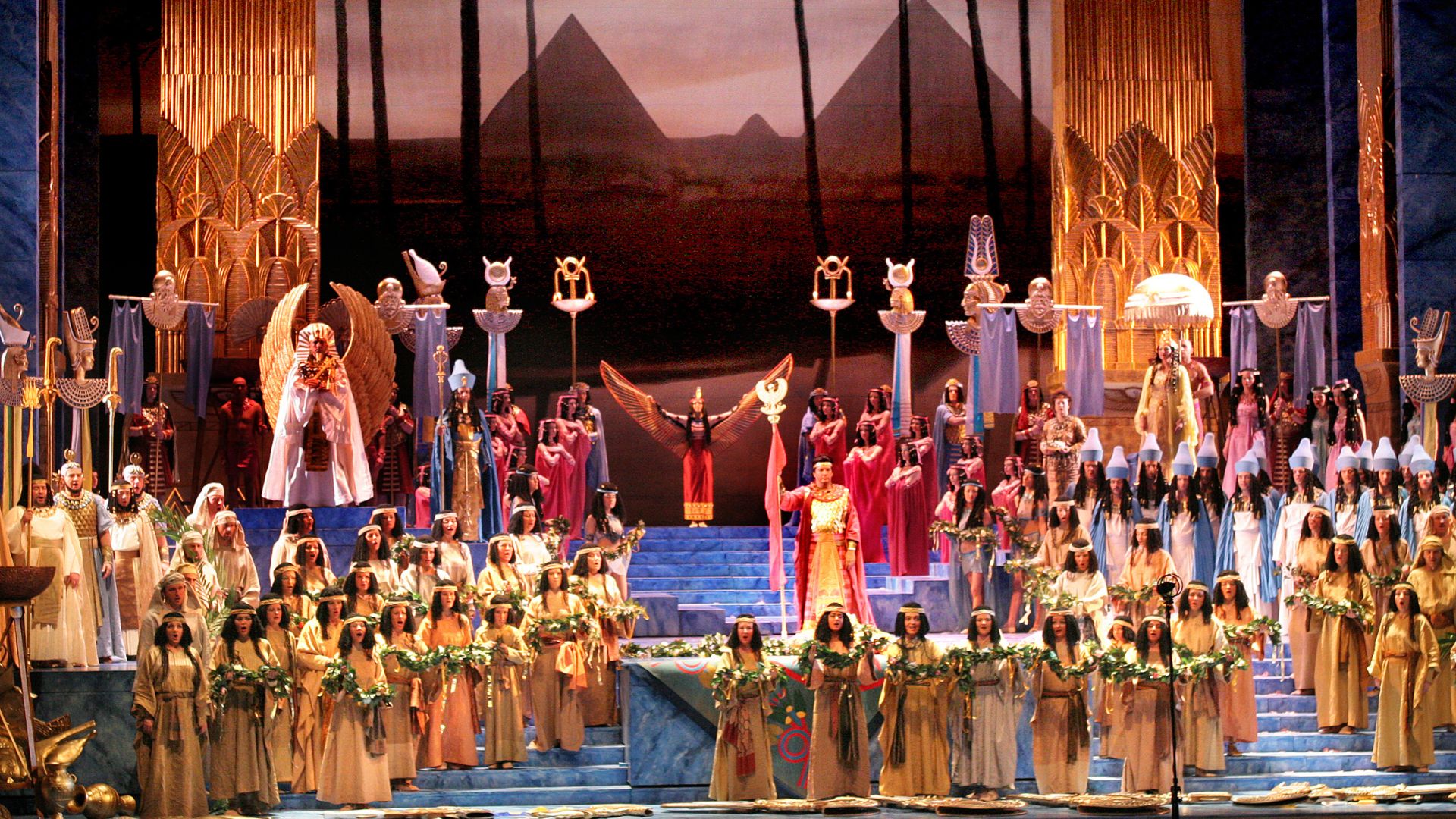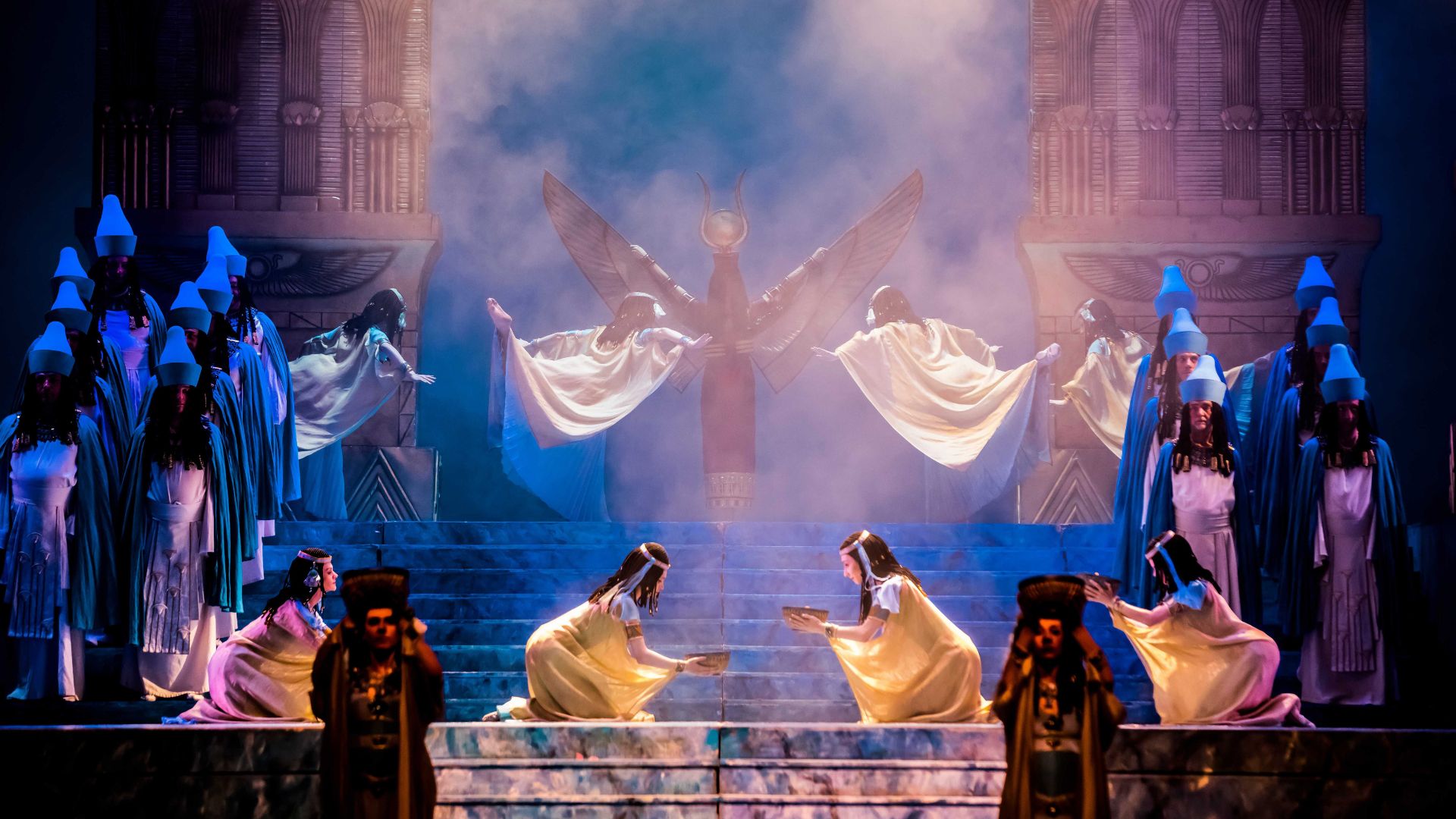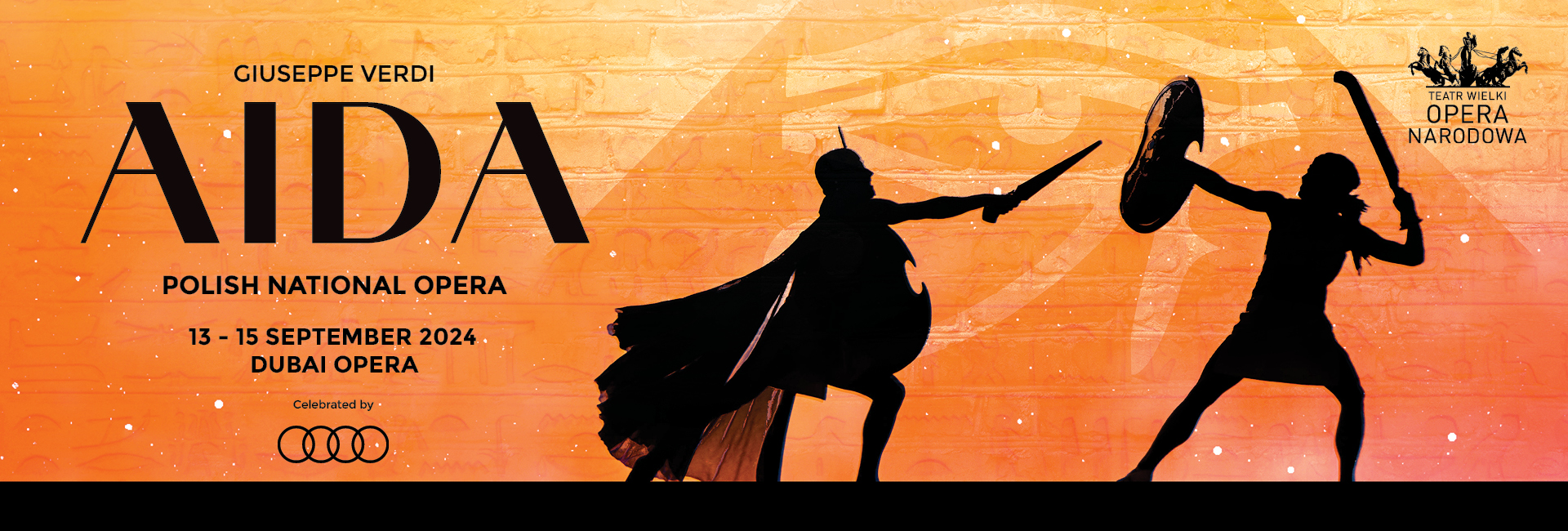
AIDA - Opera by Giuseppe Verdi
Back by popular demand, one of the greatest opera’s ever, Giuseppe Verdi's masterpiece Aida returns to Dubai Opera for the opening of the 2024-2025 season this September! Performed by the Polish National Opera Orchestra, Choir and Soloists under the baton of conductor Patrick Fournillier and the direction of Roberto Laganà Manoli, this timeless tale of love, sacrifice and betrayal in ancient Egypt is a must-see for opera enthusiasts and newcomers alike.
Background:
Aida tells the story of an Ethiopian princess captured and enslaved by the Egyptians. She falls in love with Radamès, an Egyptian military commander, leading to a tragic love triangle involving the Pharaoh's daughter, Amneris. The opera, which first premiered in Cairo in 1871, is renowned for its powerful music and dramatic narrative.
Why it’s a must-see:
Iconic Score: Enjoy Verdi's iconic, powerful score performed by the acclaimed National Polish Opera
Powerful Performances: Be captivated by the incredible voices and sweeping drama of the tragic story with powerful and emotive performances
Spectacular Visuals: Experience grand, visually stunning sets and costumes that transport you to the exotic world of ancient Egypt.
Dramatic Love Story: Witness the gripping tale of forbidden love amidst political turmoil, featuring a tragic love triangle and intense emotions that will leave you in awe.
Don't miss this opportunity to immerse yourself in the grandeur and drama of one of the greatest opera’s of all time, Aida at Dubai Opera. Book your tickets now and let Verdi's timeless masterpiece sweep you away on a journey of love, sacrifice, and betrayal.
Premiere night tickets for September 13 will include a glass of champagne.
This show is celebrated by Audi.
Act I
Scene 1: At Pharaoh’s palace in Memphis, Ramfis, the high priest of Isis, meets with young warrior Radames. It turns out that the goddess is to choose the commander who will lead the Egyptian forces against the Ethiopians. He is in love with a young slave called Aida who was captured during previous battles with the invaders. He hopes that grateful Pharaoh will then give Aida her freedom and consent to his marriage to his beloved (“Celeste Aida”). Pharaoh’s daughter Amneris approaches the young man immersed in his dreams. She has loved Radames for a long time and is worried by his indifference. A messenger brings news of an Ethiopian attack under King Amonasro’s command. Pharaoh calls upon his compatriots to fight and announces that the goddess Isis has already chosen a commander who will lead the Egyptian forces. Aida faces a dilemma: she would like to wish Radames victory, but that would mean defeat and hardship for her country. (“Ritorna vincitor”).
Scene 2: A ceremony is in progress at the temple of Vulcan, with virgin priestesses dancing religious dances in front of a statue of the god Ftha. To the accompaniment of singing, Ramfis hands Radames a holy sword before the battle (“Nume, custode e vindice”).
Act II
Scene 1: Amneris in her chambers awaits the return of the victorious Egyptian forces. A conversation with Aida satisfies Pharaoh’s daughter that the Ethiopian slave loves Radames. Amneris proudly confesses that she is her rival in love (“Fu la sorte dell’armi”).
Scene 2: Pharaoh arrives with Amneris and Ramfis the high priest. Aida is terrified to see her father, King Amonasro, among the Ethiopian prisoners. To Pharaoh’s enquiry he replies that he is Aida’s father and claims that his king, Amonasro, was killed and begs for mercy. Radames, too, asks for freedom for the vanquished. The Egyptian ruler agrees with the high priest and gives Radames one more token of gratitude for his victory: the hand of his daughter. Radames, however, love is more important than a crown, and Pharaoh’s prize leaves him torn apart.
Act III
Amneris goes to the temple of Isis on the Nile riverbank. Pharaoh’s daughter wishes to spend the night before her wedding on prayer. Aida arrives a moment later for a tryst with her beloved. Her heart is filled with longing for her country (“O patria mia”). Amonasro unexpectedly appears as well. Knowing that Radames is readying for another war expedition, he persuades his daughter to use the Egyptian commander’s love to further the Ethiopian cause (“Ciel! Mio padre!”). Aida refuses, but ultimately surrenders to her father’s will.
Act IV
Scene 1: Pharaoh’s daughter would like to save her beloved Radames and orders that the prisoner be brought to the palace. Before he stands before a court of priests, Amneris promises to obtain a pardon for him if he marries her and renounces Aida. Radames refuses, he would rather die than live without Aida. He stands silent before the court, and the priests led by Ramfis sentence him to death in disgrace.
Scene 2: Radames has been walled up in his tomb. His warm thoughts keep running to Aida. He does not know that she eluded the chase, knows of the court sentence, and hid in the crypt earlier to die with him. Their final meeting is suffused with feelings of love and eternal bliss (“O terra addio”). The deeply grieving Amneris comes to the temple to pray at Radames’ tomb for the peace of his soul.
Conductor: Patrick Fournillier
Choreographer: Emil Wesołowski
Director, set and lighting designer: Roberto Laganà Manoli
Chorus Master: Mirosław Janowski
Aida 1: Marigona Qerkezi (13,15)
Aida 2: Oxana Nosatova (14)
Amneris 1: Agnieszka Rehlis (13,15)
Amneris 2: Monika Ledzion (14)
Radames 1: Hovhannes Ayvazyan (13,15)
Radames 2: Milen Bozhkov (14)
Amonasro 1: Andrzej Dobber (13,15)
Amonasro 2: Stepan Drobit (14)
Ramfis 1: Iura Maimescu (13,15)
Ramfis 2: Remigiusz Łukomski (14)
Pharaoh: Bartosz Kieszkowski
A Priestess: Katarzyna Trylnik
Messenger: Piotr Maciejowski
Approximately 3 hours and 40 minutes including an intermission
Dubai Opera is the ideal venue to celebrate elegance and style. Kindly avoid overly casual or provocative attire, such as shorts or flip flops, to uphold our venue standards. Guests not complying with the dress code will not be permitted entry.
6+ years would require a ticket to enter the Dubai Opera Main Auditorium.
Below 6+ years are not permitted into the Dubai Opera Main Auditorium.
This ticket is sold subject to these Ticketing Terms and Conditions (the “T&C”). The T&C should be read carefully prior to purchase and purchase of Ticket(s) constitutes acceptance of the T&C.
This ticket must be produced to gain entry into an event.
Removing any part of, altering or defacing the ticket may invalidate it.
This ticket must not, without the prior written consent of Dubai Opera, be resold or used for advertising, promotion or other commercial purposes, if not the ticket will be cancelled immediately.
This ticket is only valid for the specific date, time and event shown.
Dubai Opera does not offer refunds or exchanges as a result of a change in your personal circumstances. Dubai Opera at its sole discretion may only refund or exchange a ticket if an event is cancelled or rescheduled and you cannot attend the rescheduled event. This includes, but is not limited to, any circumstances related to Covid-19 which might prevent you from attending.
Dubai Opera can only replace lost, stolen or damaged tickets if the authenticity of the ticket can be verified, including proof of purchase, subject to replacement fee.
Dubai Opera reserves the right to add, withdraw, reschedule or substitute artists and/or vary advertised programmes, prices, seating arrangements and audience capacity without prior notice.
Admission to an event is subject to Dubai Opera’s Conditions of Entry which can be found on Dubai Opera’s website www.dubaiopera.com
Where concessions are applicable, valid proof of identity and concession entitlement must be provided for collection of tickets at the event.
Entry to the event may be subject to age restrictions specified in Dubai Opera’s website www.dubaiopera.com or in publicity for the event, and no refund will be made on the grounds that the ticket holder was not aware of such age restrictions.
Dubai Opera reserves the right without refund or compensation to refuse admission/evict any person(s) whose conduct is disorderly or inappropriate or who poses a threat to security, or to the enjoyment of the event by others.
The ticket holder agrees to submit to any search for any prohibited items including but not limited to weapons, controlled, dangerous and illegal substances and recording devices.
Patrons arriving late to a performance will only be admitted into the auditorium at a suitable pause or intermission. Latecomers may be seated in alternative seat locations if available to avoid disruption of the performance.
The use of mobile phones, camera and other electronic devised inside the auditorium are prohibited. Exceptions may occur depending on the type of event.
The ticket holder voluntarily assumes all risk and danger incidental to the event whether occurring prior to, during or subsequent to the actual event, including any death, personal injury, loss, damage or liability.
Food & Beverage purchased outside Dubai Opera are not permitted. Food and beverages are strictly prohibited inside the auditorium. This applies before the show, during the show and during the intermission. Exceptions may occur depending on the type of event.

